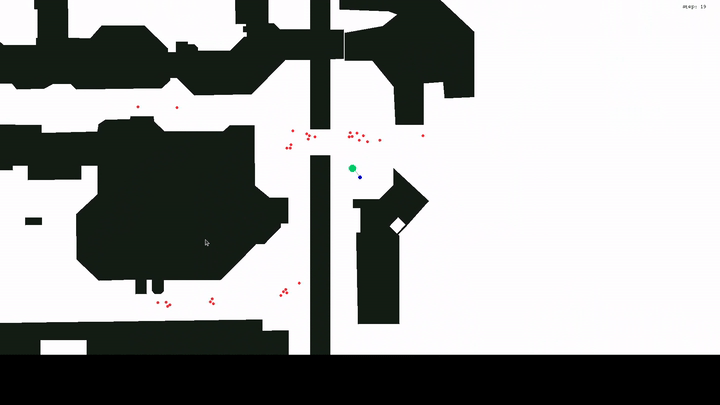2024-03-28 Under Development. See https://github.com/ll7/robot_sf_ll7/issues.
This project provides a training environment for the simulation of a robot moving in a pedestrian-filled space.
The project interfaces with Faram Foundations "Gymnasium" (former OpenAI Gym) to facilitate trainings with various SOTA reinforcement learning algorithms like e.g. StableBaselines3. For simulating the pedestrians, the SocialForce model is used via a dependency on a fork of PySocialForce.
Following video outlines some training results where a robot with e-scooter kinematics is driving at the campus of University of Augsburg using real map data from OpenStreetMap.
This project currently supports two methods for installation:
.devcontainerfor Visual Studio Code .devcontainer/readme.md- Manual installation
For 1. follow the instructions in the .devcontainer directory.
For 2. follow the instructions below:
git clone --recurse-submodules https://github.com/Bonifatius94/robot-sf
cd robot-sfpython3 -m pip install pip --upgrade
python3 -m pip install -r requirements.txt
python3 -m pip install -r fast-pysf/requirements.txtpushd ./fast-pysf
python3 -m pip install .
popd
python3 -m pip install .Note: This needs to be repeated to propagate robot_sf changes on a host deployment. Otherwise the calling scope might run an old version of robot_sf. Dockerized deployments will recognize when a change requires a rebuild.
Alternatively create soft links for fast-pysf. The modules and tests are automatically detected by the interpreter if the calling scope is located at the repository's root directory which is very useful e.g. for debugging.
ln -s fast-pysf/pysocialforce pysocialforce
pushd tests
# ln -s ../fast-pysf/tests pysf_tests
popdNote: The outlined command might differ on Windows, e.g. try mklink
python3 -m pytest tests
python3 -m pylint robot_sfpython3 examples/demo_offensive.py
python3 examples/demo_defensive.pydocker compose build && docker compose run \
robotsf-cuda python ./scripts/training_ppo.pyNote: See this setup to install Docker with GPU support.
Older versions use
docker-composeinstead ofdocker compose.
sudo apt-get update && sudo apt-get install -y python3-tkpython3 -m map_editorNote: See this documentation on how to use the map editor.
docker-compose build && docker-compose run \
robotsf-cuda python ./scripts/hparam_opt.py